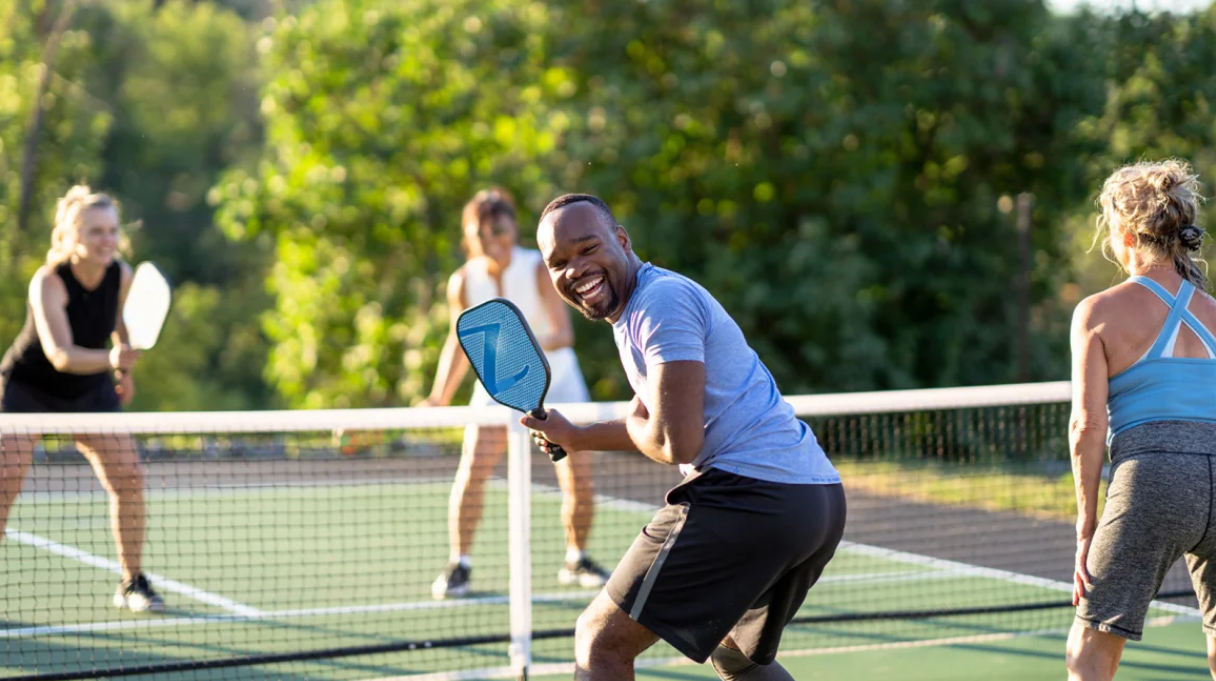Pickleball combines elements of tennis, badminton, and ping-pong. While the game is easy to learn and highly engaging, understanding the basic rules and proper etiquette is essential for ensuring fair play and enjoyable experiences for all participants. This guide will clarify common rules and outline the proper on-court behavior and sportsmanship every pickleball player should know.
The fundamental rules of pickleball are straightforward, making the game accessible to beginners while still providing a challenge for more advanced players. The game is typically played on a badminton-sized court with a slightly modified tennis net. Players use a paddle to hit a perforated plastic ball, similar to a wiffle ball, over the net. The game can be played as singles or doubles, with doubles being the more popular format.
One of the key rules of pickleball is the serve. The serve must be made underhand, with the paddle making contact below the waist. The server stands behind the baseline on one side of the centerline and must hit the ball diagonally across the net into the opponent's service court. The serve must clear the non-volley zone, also known as the "kitchen," which is a seven-foot area adjacent to the net on both sides. This rule prevents players from executing smashes right at the net, promoting longer rallies and strategic play.
Scoring in pickleball follows a unique system. Only the serving team can score points. A point is scored when the opponent fails to return the ball, hits it out of bounds, or commits a fault. Games are typically played to 11 points, and a team must win by at least two points. In doubles, each player on a team gets a chance to serve before the serve switches to the opponents, rotating serves between players to ensure fairness.
Understanding the non-volley zone, or "kitchen," is crucial in pickleball. Players cannot volley, or hit the ball out of the air, while standing in this zone. This rule adds a strategic element to the game, requiring players to be mindful of their positioning and often resulting in exciting dinking rallies, where players hit soft shots just over the net to keep the ball in play and draw their opponents in.
In addition to the rules, proper etiquette and sportsmanship are vital for maintaining a positive atmosphere on the court. One of the primary aspects of pickleball etiquette is respect for your opponents and partners. Always acknowledge good shots from your opponents and communicate effectively with your partner. Courteous behavior, such as not arguing calls and accepting line judgments graciously, helps keep the game enjoyable for everyone.
Another important aspect of pickleball etiquette is maintaining a good pace of play. Be ready to serve and receive promptly to keep the game moving. Avoid unnecessary delays, such as prolonged discussions or excessive ball bouncing before serving. Keeping the game flowing ensures that everyone gets ample playing time and maintains the enjoyment of the match.
Respecting the court and equipment is also part of proper pickleball etiquette. Treat the court and the equipment with care, ensuring that nets, paddles, and balls are not damaged through misuse. Additionally, be mindful of your surroundings and avoid disruptive behavior that could affect other players on adjacent courts.
Proper attire and equipment are also important in pickleball. Wear comfortable, athletic clothing and appropriate court shoes to prevent injuries and enhance your performance. Using the right paddle and ball for your skill level and the playing conditions can also make a significant difference in your enjoyment of the game.
In conclusion, understanding the rules and etiquette of pickleball is essential for all players, whether you’re a beginner or a seasoned pro. By following the basic rules, such as proper serving techniques and respecting the non-volley zone, and adhering to proper etiquette, such as maintaining good sportsmanship and keeping a good pace of play, you can ensure a fair and enjoyable experience for everyone involved. So, step onto the court with confidence, knowing that you are well-prepared to play by the rules and exhibit the proper etiquette that makes pickleball such a delightful and inclusive sport.

